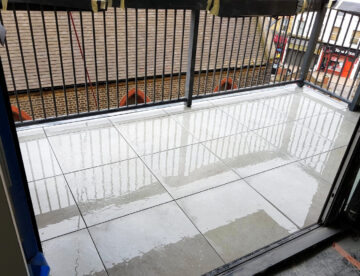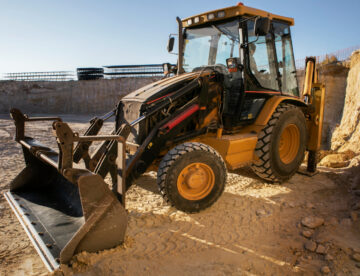
The Home Builders Federation (HBF) has recently announced the launch of a fifth round of its successful Women into Home Building programme, designed to attract more women into site management roles within the construction industry.
Partnering with ten leading homebuilders, the programme offers over 30 training opportunities, support services and work placements to aspiring female site managers. Find out more in this week’s blog.

A fire that ripped through a residential project in East London this June led to one construction worker having to be rescued from the end of a tower crane and seven people being hospitalised due to smoke inhalation.
The fire was just one of hundreds that occur on construction sites each year across the UK, potentially putting the lives of workers and members of the public at risk. Make sure this doesn’t happen at your site by reading our latest blog.

After a short summer break from blogging, we are back in the room and thought what better subject to resume with than another shout out to our wonderful suppliers.
In the last of this series (for the time being), we’re giving recognition to another two companies that have been consistently supporting us at Sheriff Construction and our sister companies. Read on to find out more.

A couple of weeks ago, we shared the first of our ‘Shout out to our suppliers’ blog series, in which we are recognising some of the brilliant suppliers who have been supporting Sheriff over the years.
While our first blog focussed on roofing and safety systems, today we’re turning our attention to two suppliers who, between them, are providing us with most of our masonry requirements. Keep reading to find out who they are.

Arriving on the construction scene as a small gang of builders back in 2005, we have grown into a much larger enterprise that now comprises of two construction companies (Sheriff Construction and Sheriff Brickworks) plus two property development companies.
We could not have managed this level of growth without the fantastic suppliers that have supported us along the way, often for many years. So, we thought it was about time we used our blog to shine the spotlight on some of them. Read on for part 1 of this ‘shout out to our suppliers’ series.

Falling from heights is the number one cause of fatal and non-fatal incidents in the construction sector in the UK. That’s why it’s really important for construction companies like ours to keep up with advancements in safety technologies.
Among the numerous innovations that are happening in our industry, G decking has emerged as something of a game-changer, not only reducing the risks associated with working at heights but also streamlining workflows and boosting overall productivity. Read on to find out more.

This year’s Mental Health Awareness Week began on Monday 13th and will run through to Sunday 19th May 2024. The theme, set by the Mental Health Foundation, is ‘Movement: moving for our mental health,’.
Acknowledging that being physically active is great for our bodies and minds, the campaign calls on everyone to find and do something that gets you moving. Read on to find out more about why movement is so important for mental health.

Yesterday was Earth Day, an annual event when organisations and individuals around the world celebrate our remarkable planet and demonstrate support for environmental conservation and sustainability.
It’s got us thinking about some of the actions our industry can take – everything from reducing plastic waste and minimising the use of water on site to going paperless and lowering energy consumption at the office. Another idea is to purchase pre-used construction equipment but there are several considerations to take on board around this so let’s explore those in this week’s blog.

One of our team just came back from an overnight trip full of praise for the hotel they stayed in and its management.
Not only was this because the hotel was great but also because of an email the manager had sent within minutes of them checking in, which explained the high standards they wanted to achieve and what guests should do if anything falls short of that. Read our blog for more about how we think this type of excellent customer care could be applied to our work.

Having just returned from a business trip in Thailand, our Managing Director, Ekrem Mahmutaj, is currently full of tales about the places he visited and the people he met.
A strong believer in the philosophy that travel opens up your mind, he’s also been using this trip to demonstrate how travel can actually offer huge benefits for business people. In a slight detour from our normal topics, why not read this week’s blog to see what you could be learning by taking a voyage.
